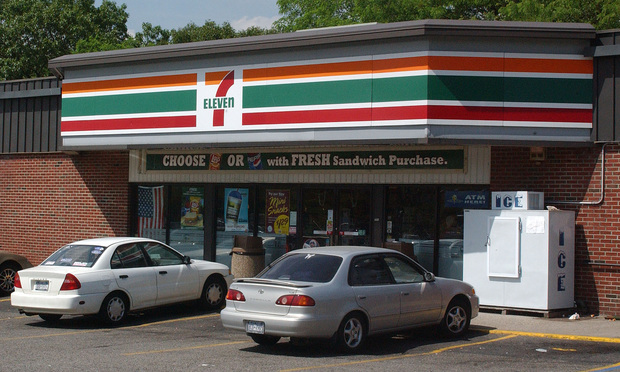07 Aug 7-Eleven Franchisees Allowed to Proceed With FLSA Suit
New Jersey Law Journal
Charles Toutant
August 6, 2014
Citing 7-Eleven’s pervasive control of its franchisees’ operations, a Camden, N.J., federal judge denied a motion by the convenience store chain to dismiss franchisees’ claims that they are employees of the company and have been denied compensation and overtime pay in violation of the Fair Labor Standards Act.
In a suit against 7-Eleven by four franchisees, U.S. District Judge Renee Bumb of the District of New Jersey found the plaintiffs made a sufficient showing that they are employees to survive the company’s motion to dismiss claims under the FLSA and the New Jersey Wage and Hour Act. The franchisees’ assertion that they are employees was also supported by their allegations concerning the permanency of their relationship with the company, their integral role in the company’s business and their economic dependence on the company, Bumb said.
According to Bumb, the franchisees’ wage-and-hour claims were supported by allegations that 7-Eleven controls settings on the heat and air conditioning and the volume on the television in individual stores from corporate headquarters; that the company controls pricing, ordering and advertising of products; monitors franchisees’ conduct on video cameras; conducts all accounting itself; and forbids the plaintiffs from making cash withdrawals without company approval, the judge said.
In declining to dismiss the FLSA claim in Nair v. 7-Eleven, Bumb noted that the U.S. Court of Appeals for the Third Circuit has defined “expansively” the question of who is an employee. Applying a six-part test from Martin v. Selker Bros., a Third Circuit case from 1991, Bumb found four of the factors weighed in favor of a finding that the franchisees are employees.
Those four factors were the degree of the alleged employer’s right to control the manner in which the work is performed; the employee’s investment in equipment or materials, or his employment of helpers; the degree of permanence of the working relationship; and whether the service rendered is an integral part of the alleged employer’s business. A fifth factor—whether the service rendered required special skills—weighed against a finding that the plaintiffs are employees. Finally, on the question of whether the plaintiffs’ opportunity to make a profit depends on their own skill, rather than factors outside their control, the court found the answer was “a close call” that would not weigh either positively or negatively in the analysis.
The plaintiffs claim in their suit that 7-Eleven engages in the fraudulent misrepresentation of its relationship with its store operators in order to avoid paying them minimum and overtime wages, medical, pension and other employment-related benefits. They also claim they are subject to harassment by 7-Eleven and are being pressured to give up their franchises without compensation for the substantial equity they have built up in their businesses over many years.
Bumb also denied the defendants’ motion to dismiss counts claiming the company breached an implied covenant of good faith and fair dealing and that it violated the New Jersey Franchise Practices Act by holding franchisees to unreasonable standards. The plaintiffs claim in their suit that 7-Eleven’s requirement that they purchase maintenance contracts from the company leaves them at the company’s mercy when unanswered maintenance calls cause food products to spoil.
Gerald Marks of Marks & Klein in Red Bank, N.J., who represents the plaintiffs, has raised similar claims that 7-Eleven’s level of control of individual stores supports a finding that its franchisees are employees in another New Jersey case and in one filed in federal court in the Central District of California. No dispositive rulings have been issued in those cases.
“This franchisor is without doubt the worst example of franchising, because it totally strips away any sort of decisional power on the part of the franchisee. Other franchisors needn’t fear this type of attack because of the way 7-Eleven has imposed these rigid controls. You can see this is not a normal franchise situation,” he said.
Marks claimed 7-Eleven is attempting to “churn” its franchisees, by wresting control of its most profitable stores and reselling the franchises, as a prelude to a public stock offering in the company. He said a finding that the plaintiffs are employees would not prevent them from claiming the equity in their businesses.
The lawyer representing 7-Eleven, Stephen Sussman of Duane Morris in Cherry Hill, N.J., declined to comment on the ruling.

